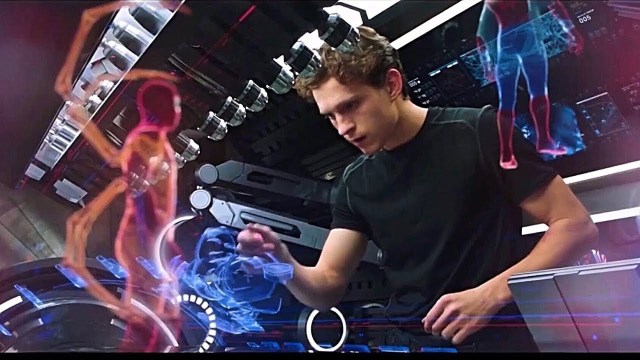
Proponents of the MCU version of Peter Parker have often defended his characterization as logical and necessary in context. But is this really the case?
Tl:dr version: No it is not.
Forgive some laziness on my part because I’m going to be presuming everyone’s familiarity with the comic book iteration of Spider-Man and his MCU adaptation for the most part. To say there is a divide between many fans of former vs. the latter would be an understatement.
Detractors (which I count myself among) typically sum this up as the character being reduced to ‘Iron Man Junior’. In general this refers to MCU Peter Parker’s hero-worshipping of Tony Stark/Iron Man, their father/son relationship and the similar emphasis upon high technology in their hero identities. A connected point of contention is Peter’s aspiration to become an Avenger.
This was outright confirmed by Tom Holland himself in an interview for the then upcoming ‘Spider-Man: Homecoming’.
Defenders of this take upon Spidey have argued that this portrayal makes sense in context.
After all, Peter Parker is a teenager who’s grown up in a world where the Avengers are beloved, especially Iron Man. Plus in the comics (under J. Michael Straczynski’s pen) there was a time when Peter and Tony shared a father/son relationship. Tony even equipped Peter with a high tech costume as he did in the MCU. Spider-Man early in his career attempted to join the Fantastic Four in ASM #1 and later the Avengers in ASM Annual #3.
The problem is these defences just don’t hold up to scrutiny.
Let me first be upfront about my philosophy towards adaptations.
I in no way shape or form demand nor expect adaptations to be 1:1 panel to screen translations of the source material. I fully respect that changes are a necessity.
One of many 22-page comic book stories put out every month in the 1960s inevitably needs to be altered when jumping to a 90+ minute live action film in the 2010s.
Even the characterizations need to be altered where necessary if the source material is found wanting. *side eyes Emma Stone’s Gwen Stacy*
However, my attitude is that adaptations should at minimum respect the spirit of the source material no matter what. To do otherwise defeats the object of adapting the work in the first place. If a film is just borrowing superficial traits (names, costumes, powers, etc.) and but not representing the spirit of the character, then creatively speaking it might as well be an original character.
This is the case with the MCU version of Spider-Man. A fundamental component of Stan Lee and Steve Ditko’s original vision for Spider-Man was that he was in essence the anti-Robin.
At a time when teenaged characters were sidekicks (Dick Grayson), supporting characters (Rick Jones) or the ‘kids’ in teams (Johnny Storm) Peter Parker was unique as a totally independent teen hero. Of course that independence only applied to his life as Spider-Man, but that was part of the point. Spider-Man was his escape and release from the pressures and hang ups of his regular life, which included his doting yet coddling aunt.
A critical part of this was that he was a self-made man. No elder mentor guided him in the use of his powers, helped him create his equipment or provided any sort of advice/accountability for Peter. He did it all himself. He was a loner.
On a meta level this is partially why Stan Lee (and for the longest time consequent writers) showcased Spidey not jiving with super teams. It was done to emphasis Peter’s independence and thereby his uniqueness within the genre. Even if that’s not so unique anymore (even in film), it’s still a baked in component of teen Spidey’s story. An essential aspect of who he is as a character.
As is his working class status.*
In fact these things go hand-in-hand. Just as Peter had to shoulder an ‘adult hero’s’ burden as Spider-Man (noticeably Lee didn’t dub him Spider-Boy or Lad as would’ve been common back then he also had to struggle for every penny. With the death of his uncle and his aunt’s poor health the burden of household provider fell on his shoulders.
When you take all this into account, having him fanboy over the Avengers and have a superhero mentor (let alone a billionaire one) is an aggressive misreading of the character.
The best way I can illustrate this is with an analogy from the opposite end of the spectrum. Imagine if you will a movie depicting Dick Grayson’s transformation into Robin. Except Batman was wholly absent. Not even an off-screen presence.
That is how poorly MCU has missed the point of Spider-Man.
And it was never necessary.
Contrary to defenders of the MCU, making Peter an Avengers/Iron Man fanboy was not the only logical direction to go with the character.**
Yes, in Peter’s world most kids would revere the Avengers and Iron Man. But in the real world not every kid or teen likes the Avengers characters or movies. Just as not every major pop culture phenomenon has ever been universally embraced by contemporary kids/teens. In the 1980s not every kid loved the Transformers or the Ninja Turtles. In the 1990s not ever kid loved the Power Rangers or Pokémon.
Of course, most kids did, just as most kids like the Avengers characters today. Similarly most kids in the MCU by extension would look up to the Avengers. However, if anything this could actually help generate a more spiritually faithful rendition of the character. Consider that on literally the first page of Amazing Fantasy #15 Peter Parker was mocked by his classmates for being an outsider. A bookworm who didn’t know the difference between a cha-cha and a waltz.
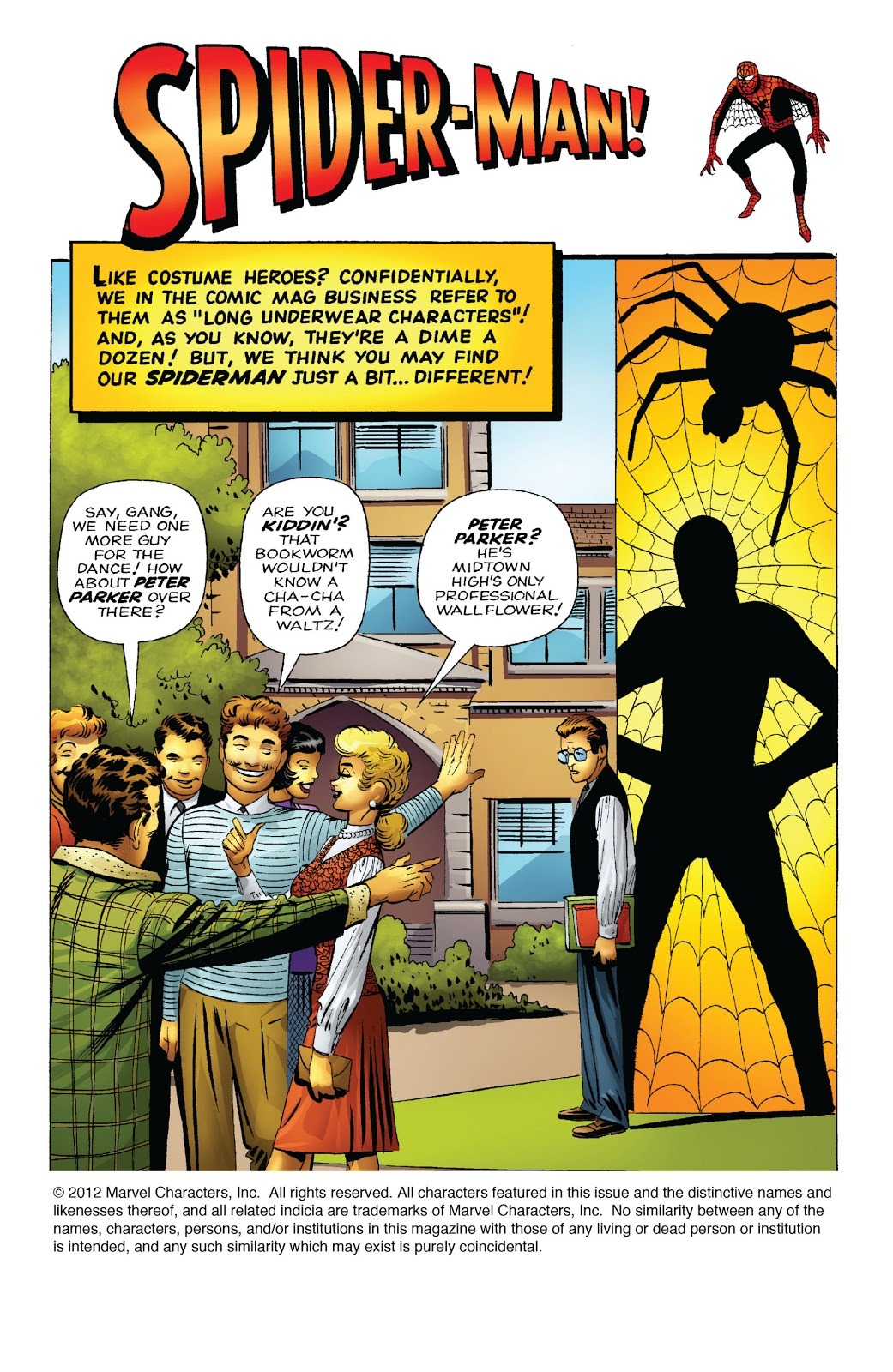
In the context of the MCU wouldn’t Peter’s lack of familiarity or interest in the Avengers make for an appropriate updating of that characterization?
Let’s also consider that in the context of the regular 616 universe Spidey held little reverence for any of the heroes who had preceded him. This included Captain America and other WWII heroes as well as the Fantastic Four and their leader, the world famous scientist Reed Richards. Peter would’ve surely known who Reed and Cap were but as originally depicted by Stan lee himself, he wasn’t falling over himself during any of their early encounters.
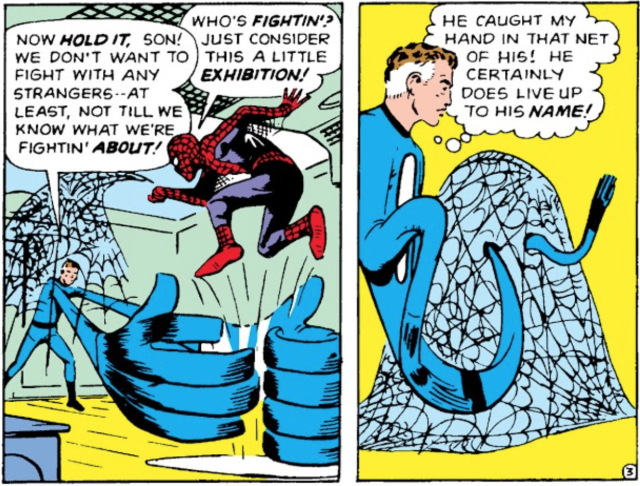
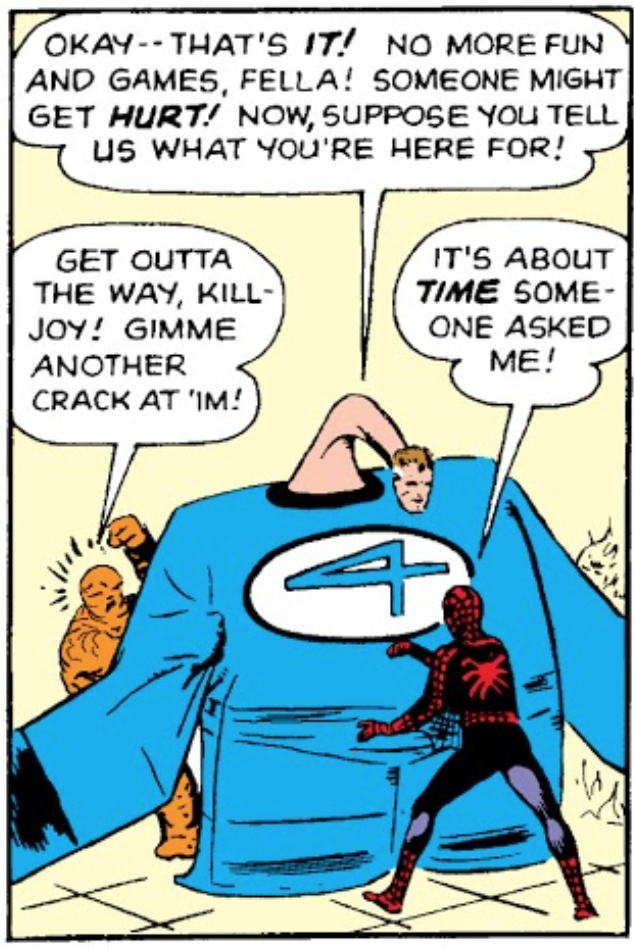
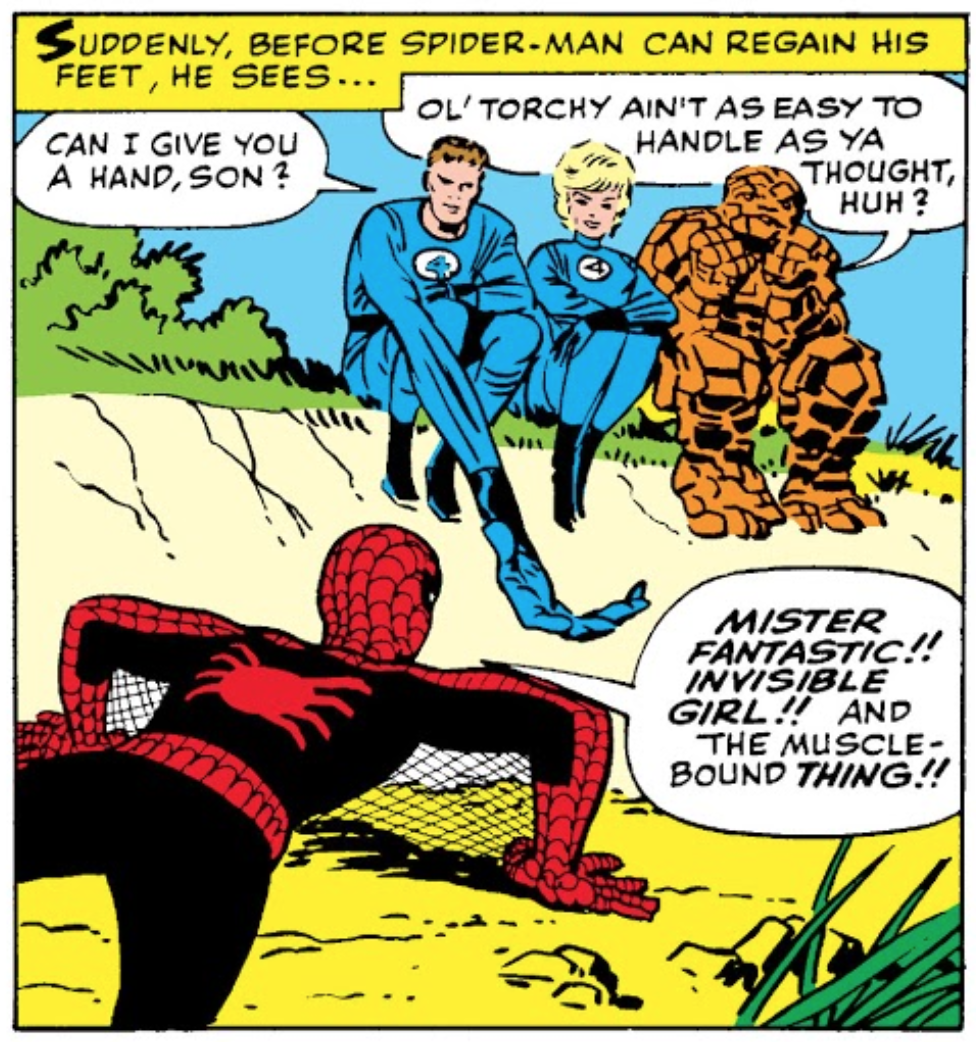
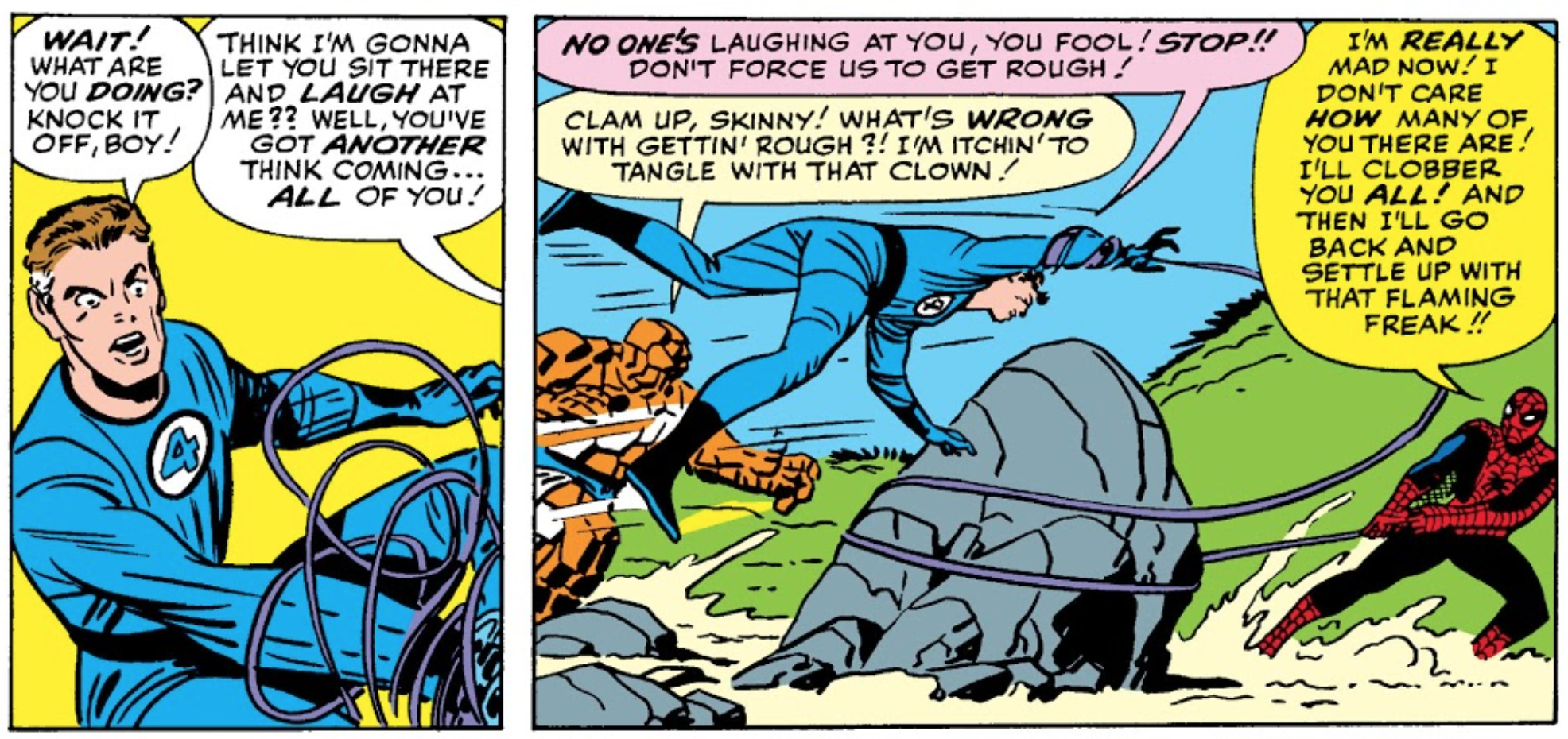
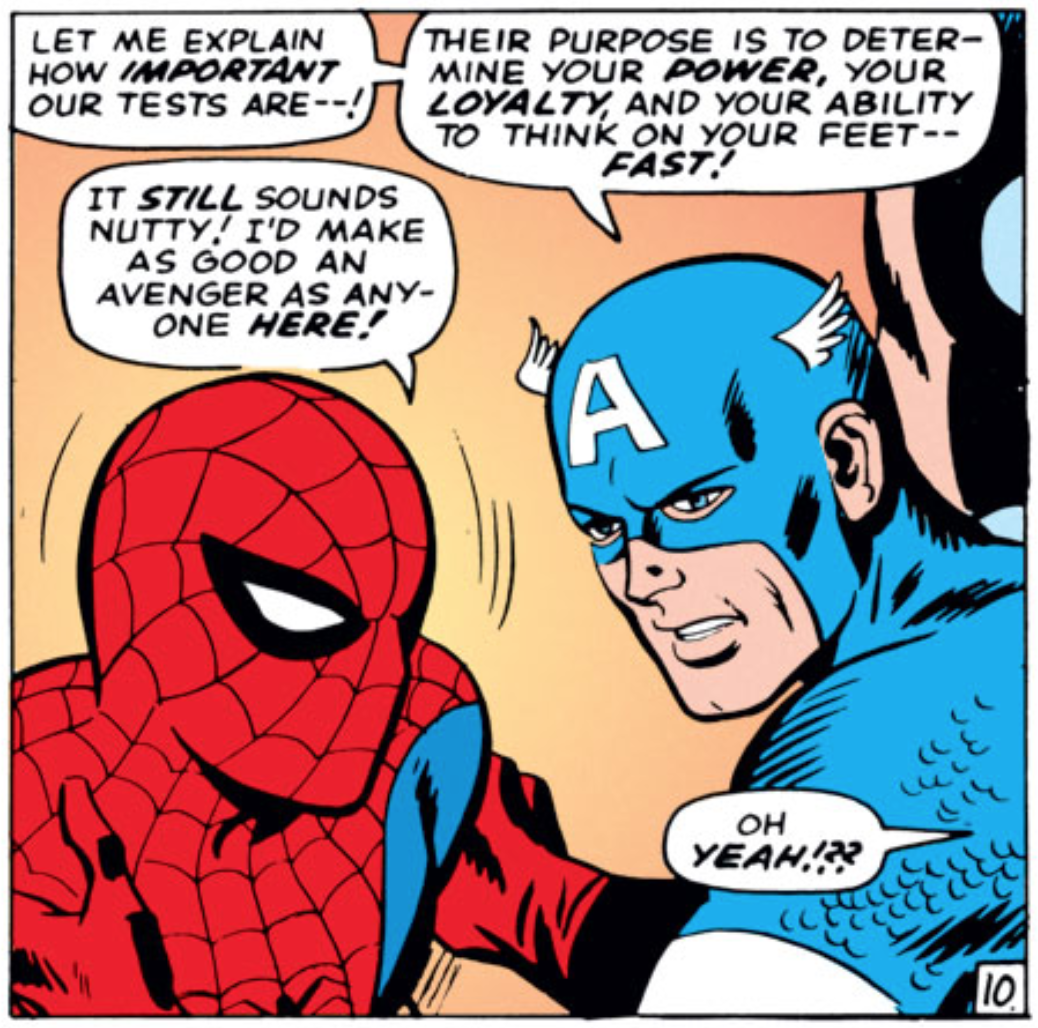
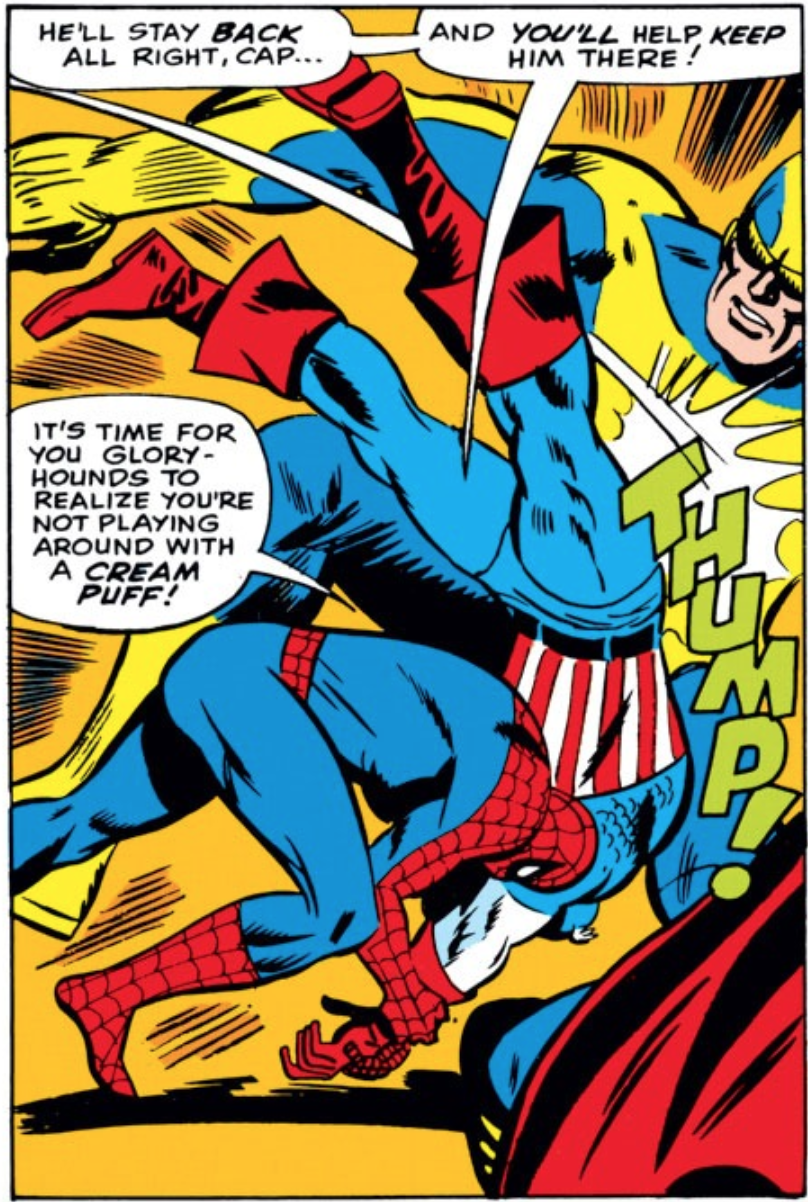
So there was already a precedent in the comics for Spidey to not be dazzled by famous A-list heroes, meaning it’d be totally believable in the context of the MCU. Indeed this was likely part of the point of the character. Just as being Spider-Man didn’t improve his outsider status within the high school hierarchy so too was he an outsider among his super hero peers. The nerd to the Avengers jocks if you will.
But what of those comic book sources that say otherwise? Surely ASM #1, ASM Annual #3 and JMS’ run on Amazing Spider-Man corroborate the MCU’s take upon the character.
Yes and no, let’s tackle them one by one.
In ASM #1 it was made explicit that Peter wanted to join the F4 for purely practical reasons. His family needed money so he hoped the F4 could provide and income. When he learned otherwise he departed as quickly as he’d arrived.
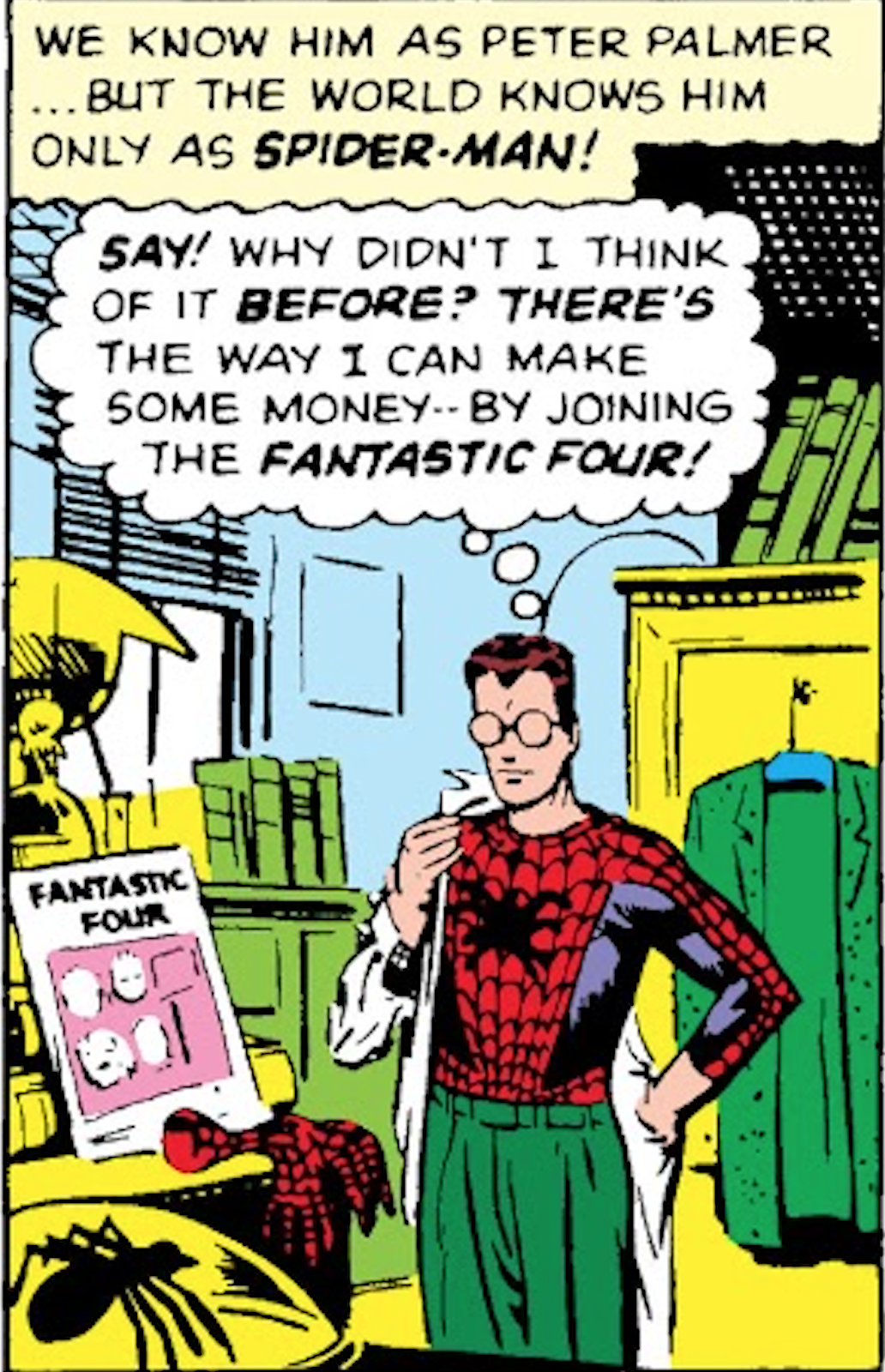
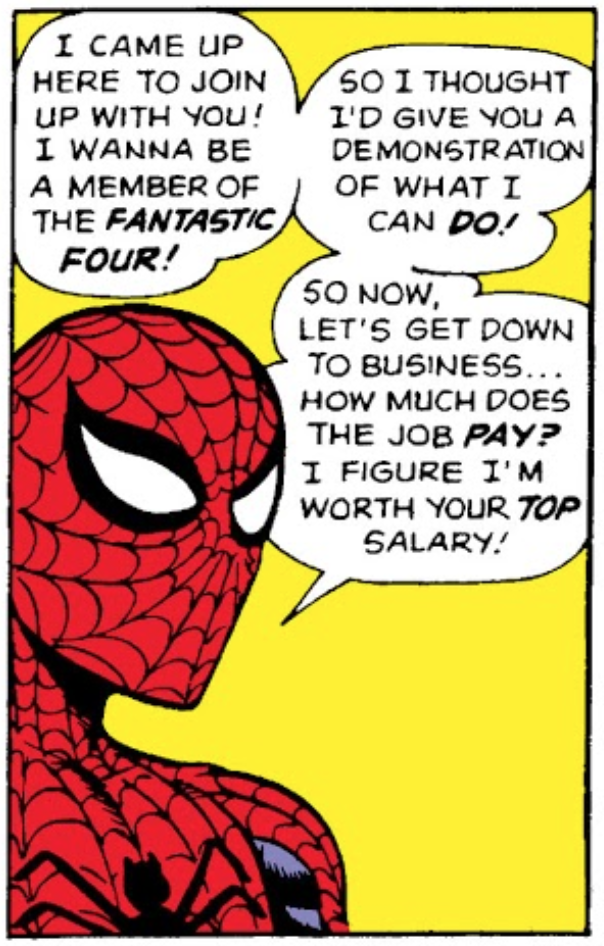
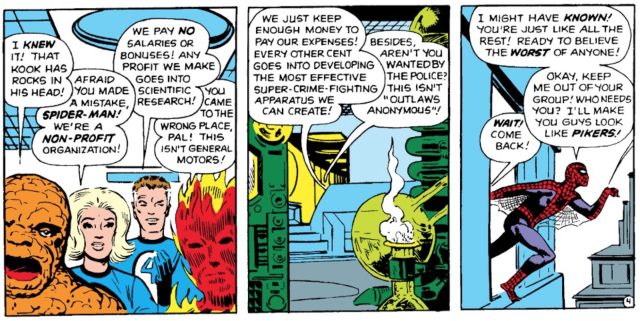
In ASM Annual #3 Peter was far from eager to join the Avengers and was equally unimpressed with them as a group.
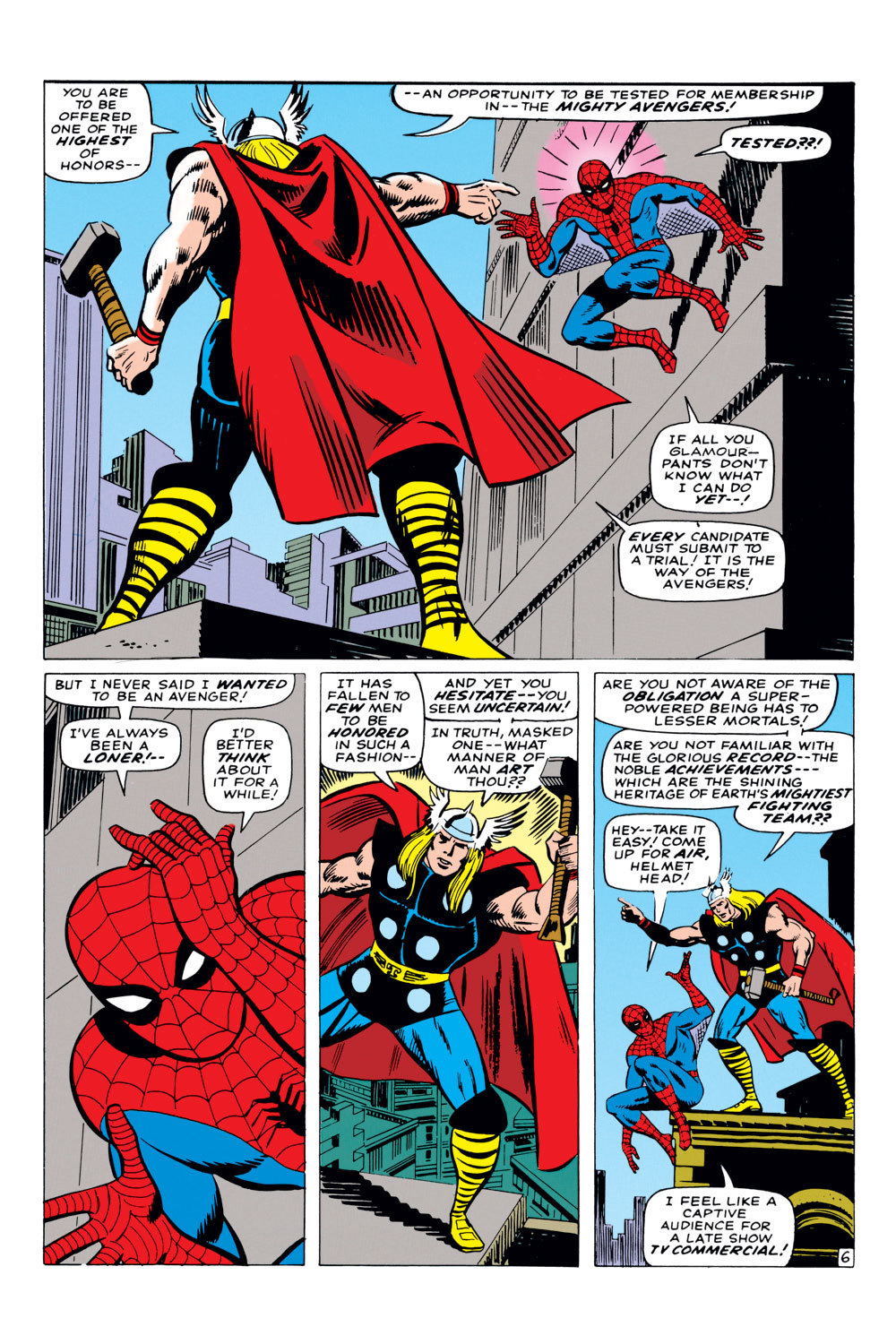
He actively sabotaged his own chances to join at the issue’s conclusion.
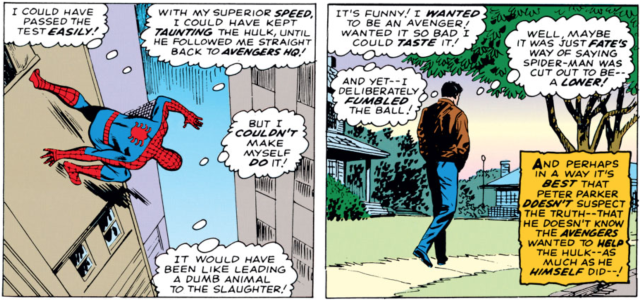
As for Straczynski’s run…sigh…strap in.
At face value this run does indeed seem to support the MCU’s rendition of Spidey. However, the support it offers falls apart due to two factors.
The first is that, well…Peter and Tony’s relationship was pretty nonsensical.
I’m no Iron Man expert so I do not know how old the character would be roughly. From my impressions of the character though circa 2006 he wasn’t even in his 40s yet. Peter by contrast was 30 years old when you do the math. Unlike Tony he’d had several very serious romantic relationships and was back then happily married (barring a brief trial separation). He and his wife had lost a child and even believed one another dead at one point or another. Peter at the time was also working as a teacher to teenagers where he was clearly framed as their elder authority figure.
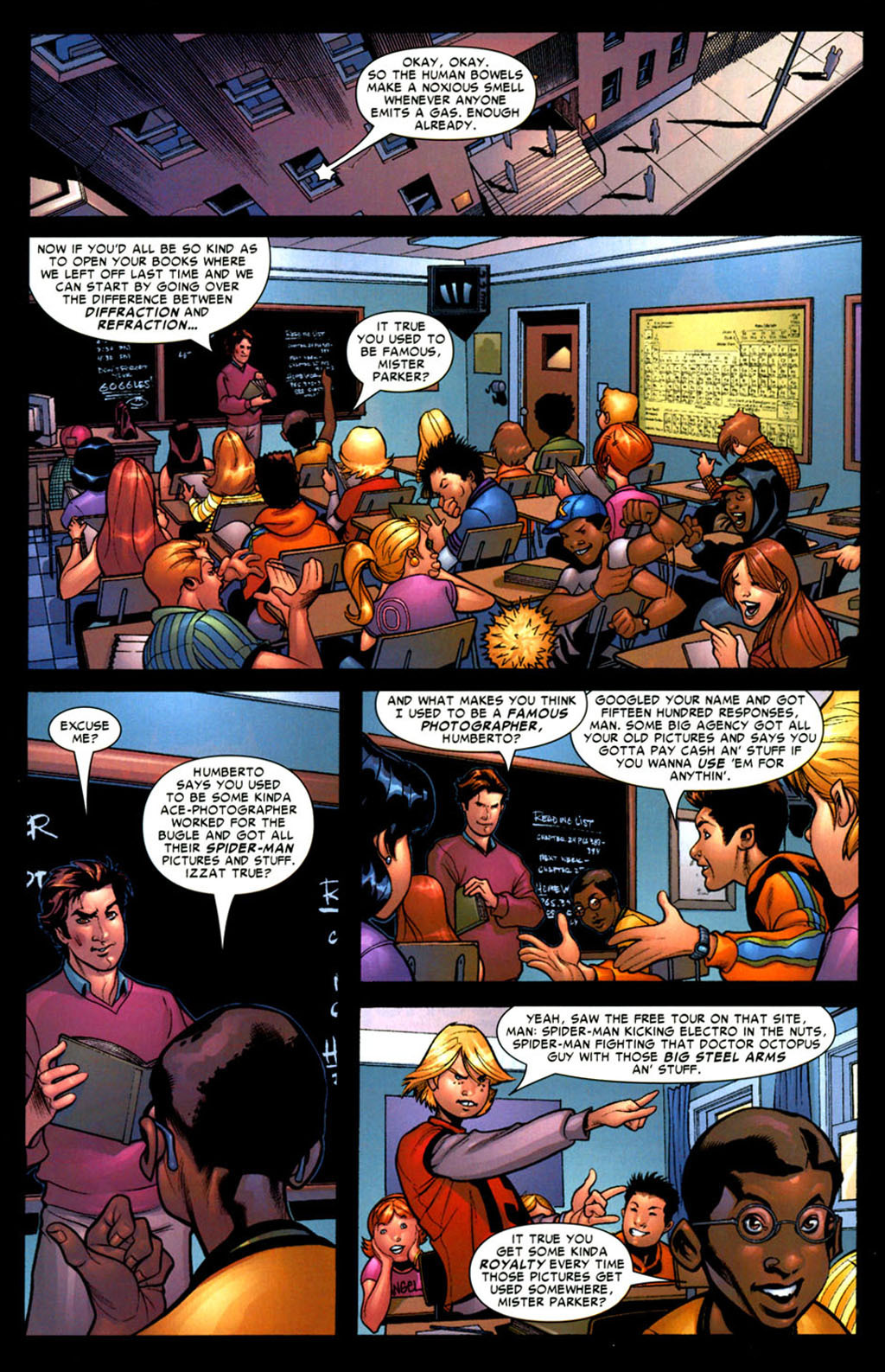
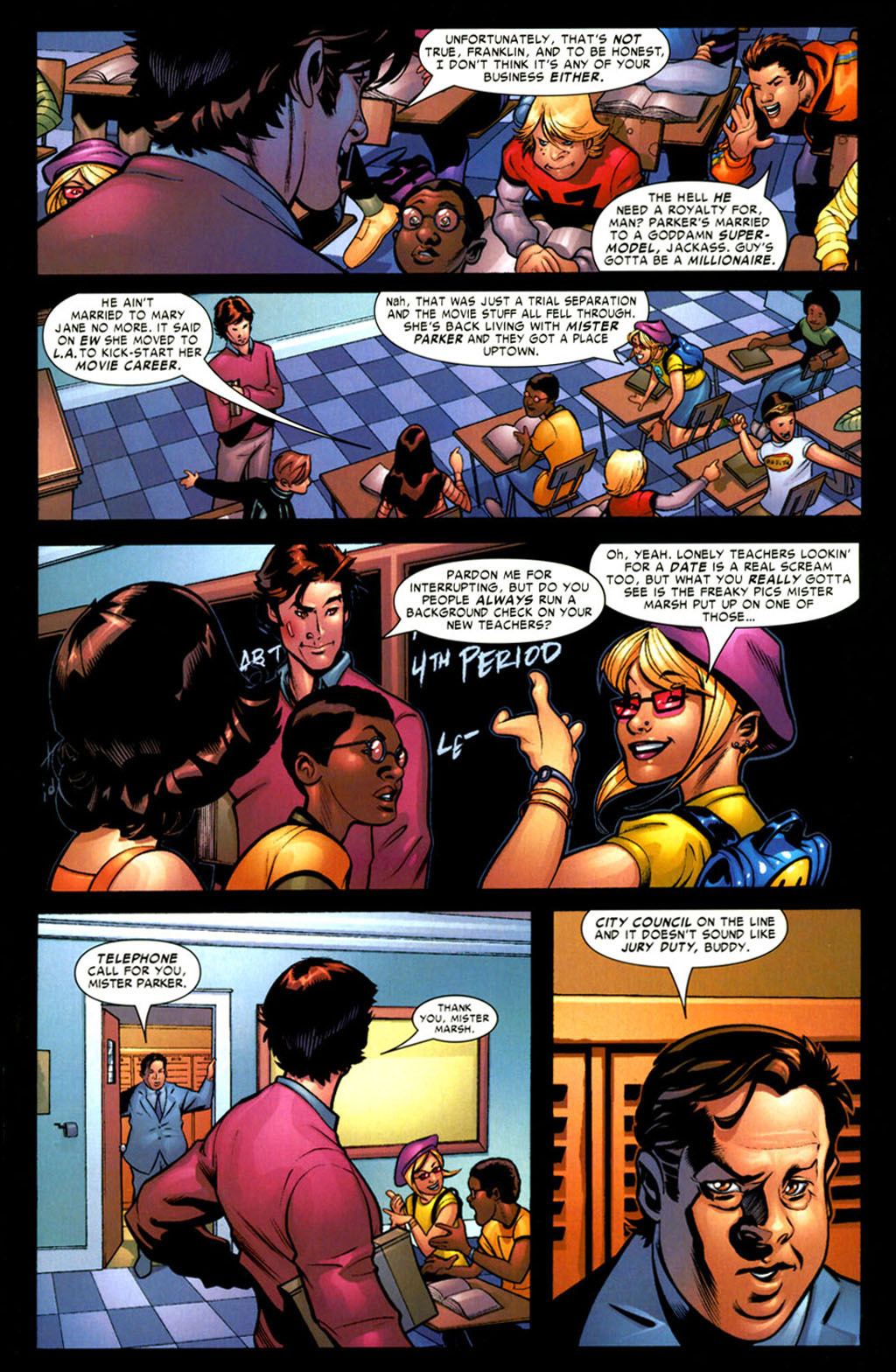
What I’m saying is that Peter was if anything more emotionally mature than Tony at this time. Or at least he was mature to the point where he was not going to view Tony as his father figure given the minor age discrepancy.
The relationship was clearly engineered with the pre-determined endgame in mind. That endgame being the ‘Civil War’ storyline wherein Peter would unmask upon Tony’s request and subsequently become a fugitive in defiance of Tony’s unethical practices. The latter would entail Tony threatening Peter and the pair coming to blows.
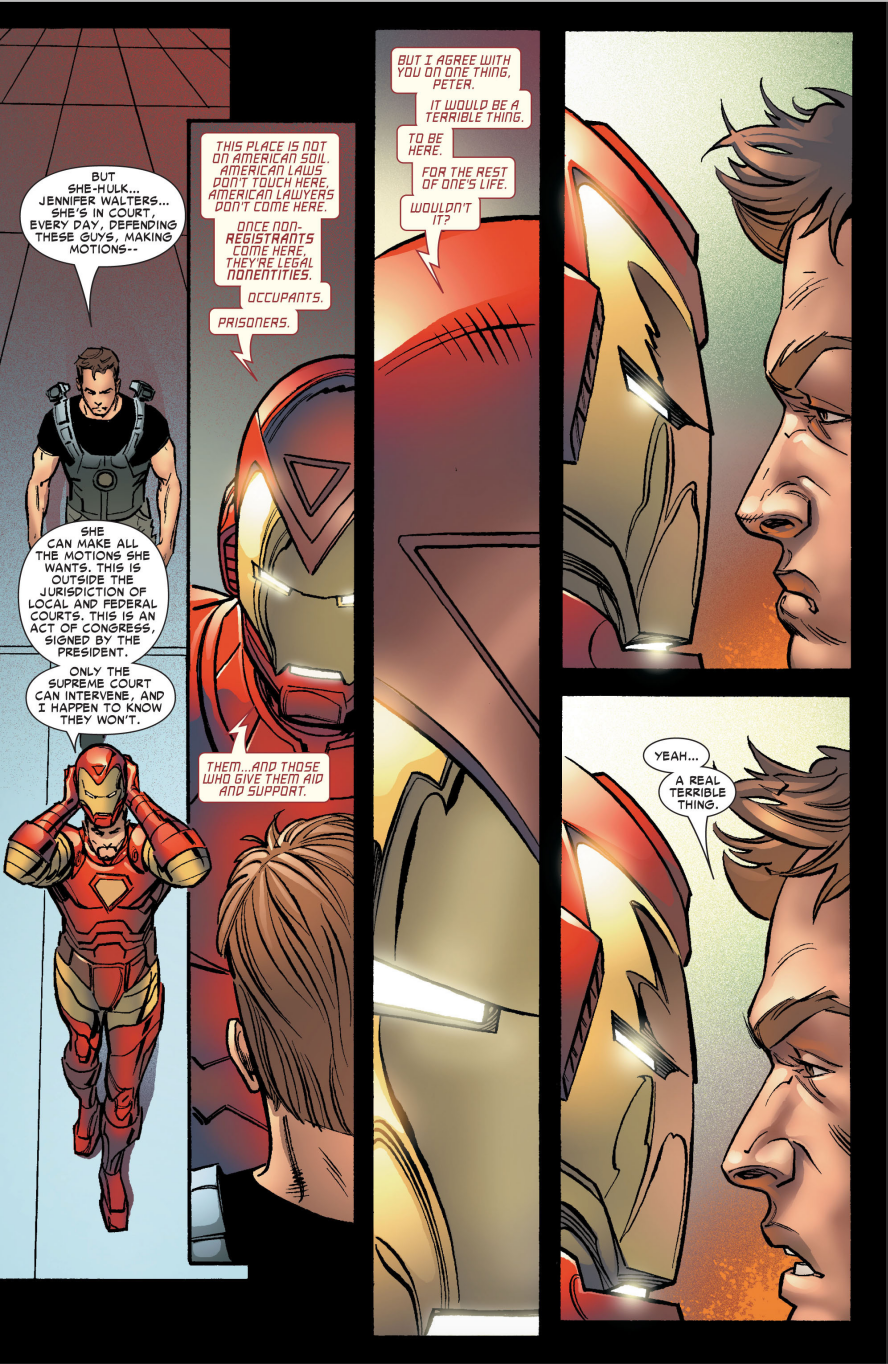
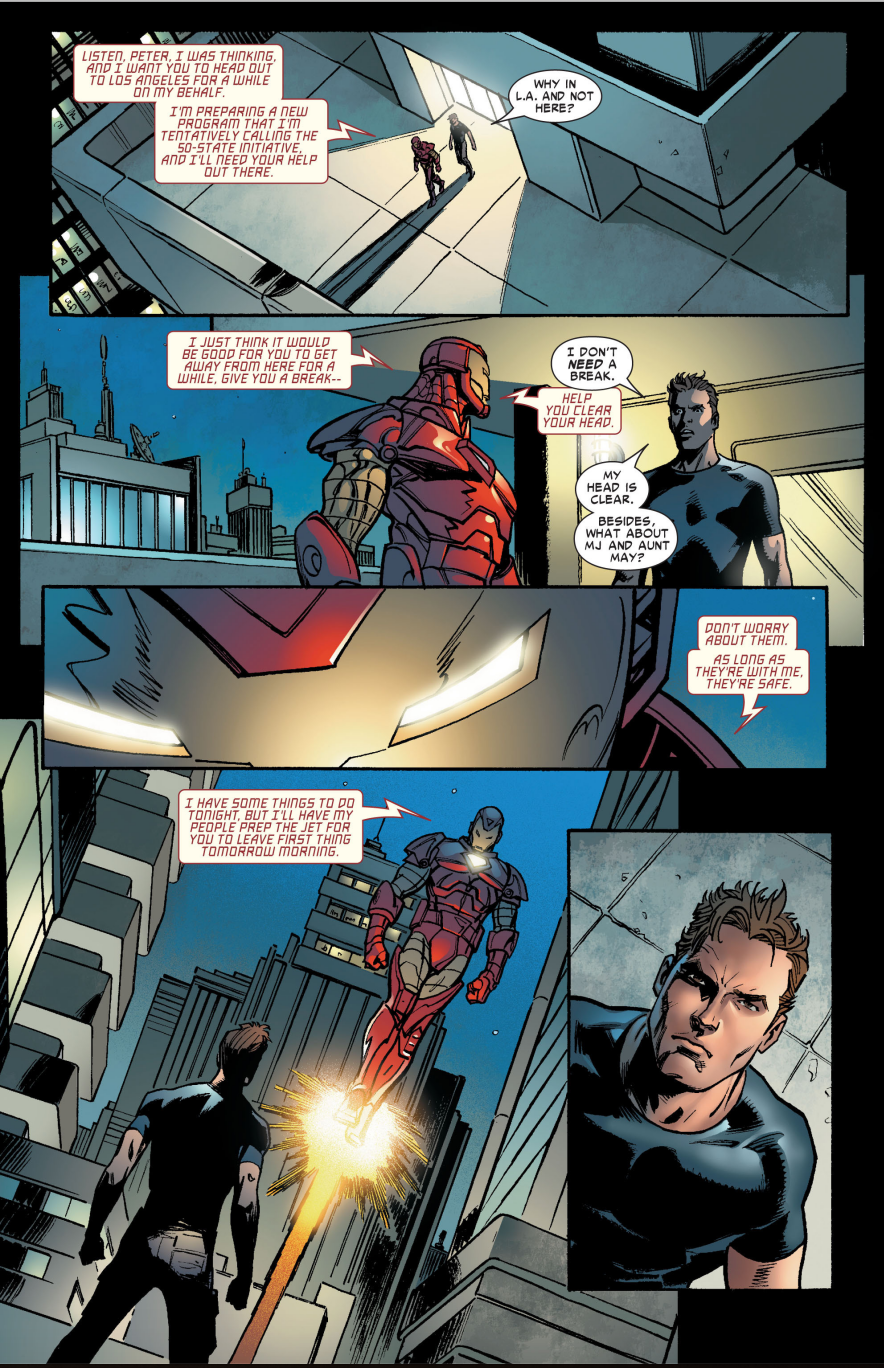
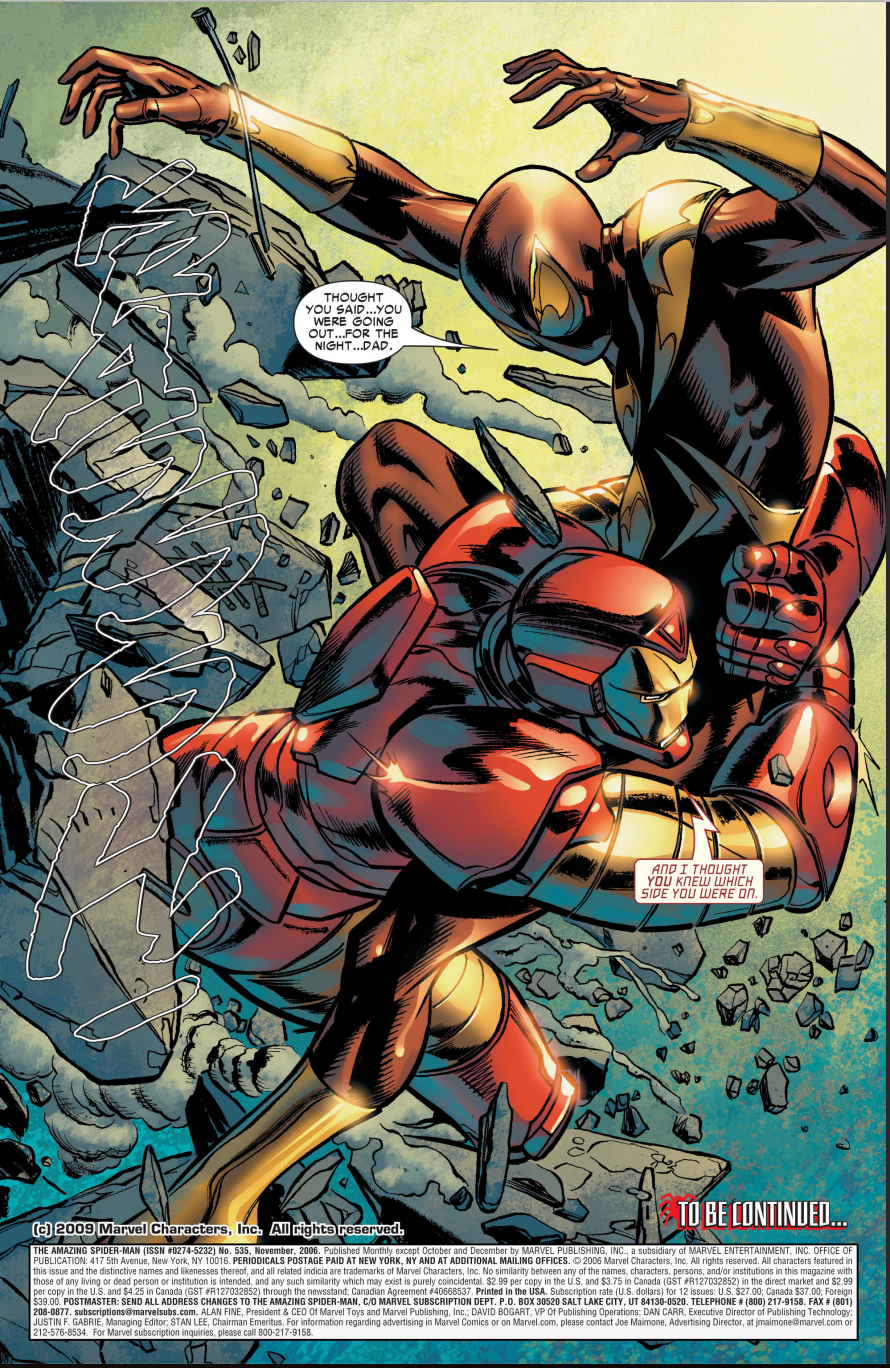
This brings me to the second factor. The totality of Peter/Tony’s relationship was designed to be a testament to how it was ultimately a bad thing.
Tony wasn’t the man Peter believed him to be.
Tony didn’t have Peter’s best interests at heart.
Tony was willing to spy, threaten and even attack Peter.
And along the way Peter and his family lost their home and the safety of Peter’s anonymity. The end result was Peter’s life becoming a shell of it’s former self, with his loved ones in serious danger. In fact you could view his fugitive status as a way to recreate the ‘good old days’ when Spider-Man was feared and hated by the public and authorities.
Had Peter retained his independence rather than surrendering any part of it to his ‘father figure’ Tony Stark, much of this could’ve been avoided. If nothing else Peter might’ve been able to unmask privately rather than publicly.
Whilst the MCU addresses the first factor via de-aging Peter, it has no answer for the second. It borrowed from the JMS run superficially and ditched the greater subtext regarding how Peter shouldn’t have formed a relationship with Tony.
I’d like to conclude by addressing the most obvious counterpoint to everything I’ve said.
If Spider-Man were more comic faithful wouldn’t it undermine the entire point of him being in the MCU? The appeal of the concept was seeing Spider-Man interact with the wider MCU. From the audience’s POV seeing yet another Spidey flick confined to using Spider-Man exclusive elements might as well have been produced solely by Sony.
The problem with this argument though is that it doesn’t consider the myriad of possibilities available. Spidey could interact with the wider MCU and still be in character.
I’m no writer but off the top of my head:
- Spidey could have defied the Sokovia Accords and thus been wanted by the authorities (a neat updating of his traditional ‘outlaw’ status), consequently coming into conflict with Iron Man
- Spidey might have still dueled the Vulture and interacted with Tony as he did in ‘Spider-Man: Homecoming’. However, instead of gradually realizing he should be a ‘friendly neighborhood’ hero, he could call Tony out for ignoring small scale crime which indirectly ‘created’ the Vulture in the first place
- Following ‘Avengers: Endgame’ the dissolution of the Avengers combined with the huge uptick in the population and displacement of citizens might’ve caused far more street crime that Peter would have to deal with. The remnants of H.Y.D.R.A. might’ve exploited this to gain a foothold upon which to rebuild.*** That might’ve warrant an appearance from more grounded heroes like Hawkeye or Ant-Man
- An environment like this could’ve been exploited by Quentin Beck to frame Spider-Man, exploiting his already shaky public reputation and make himself look more appealing by contrast
- Or Hell just do ‘Nothing Can Stop the Juggernaut’ but with the Hulk as Roger Stern planned to do in the first place
I’m sure many of you could suggest infinitely better ideas.
In conclusion, no matter how you slice it, there were better options than rendering Peter Parker Iron Man Junior instead of Spider-Man.
*The Parkers, as depicted in ‘Captain America: Civil War’ were clearly not well off financially, yet consequent depictions in the MCU have de-emphasized this to the point where you could argue they are very probably not working class anymore.
This makes sense as a billionaire like Tony Stark has no reason to take Peter under his wing but allow him to still dumpster dive for equipment. Giving the boy at least some modest financial stability would be a logical step in building a relationship with him and giving him more time and energy to put into his scientific and heroic pursuits.
**And even if it was, if the context demands Peter be rendered so unrecognizable then maybe it was just creatively reductive to integrate him into the MCU the first place.
***They have after all had connections to organized crime in the comics.


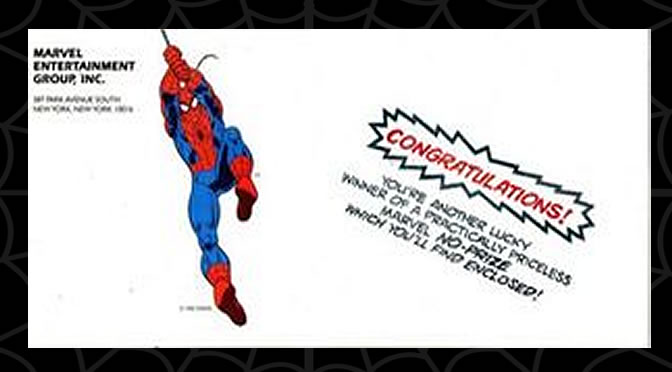
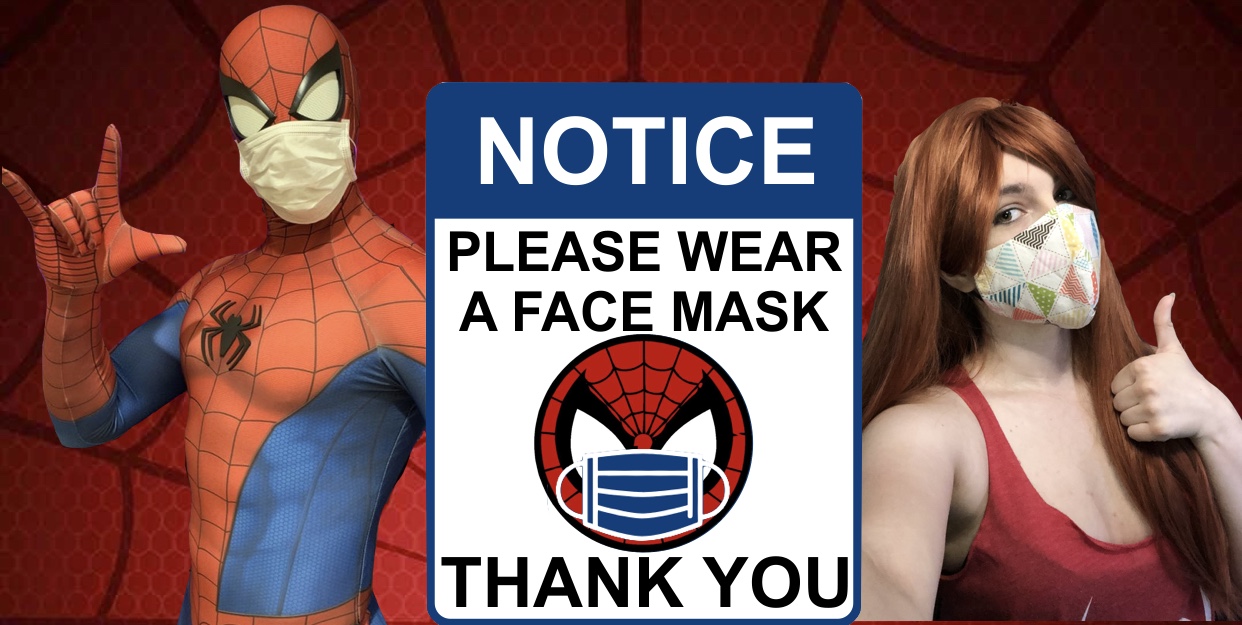
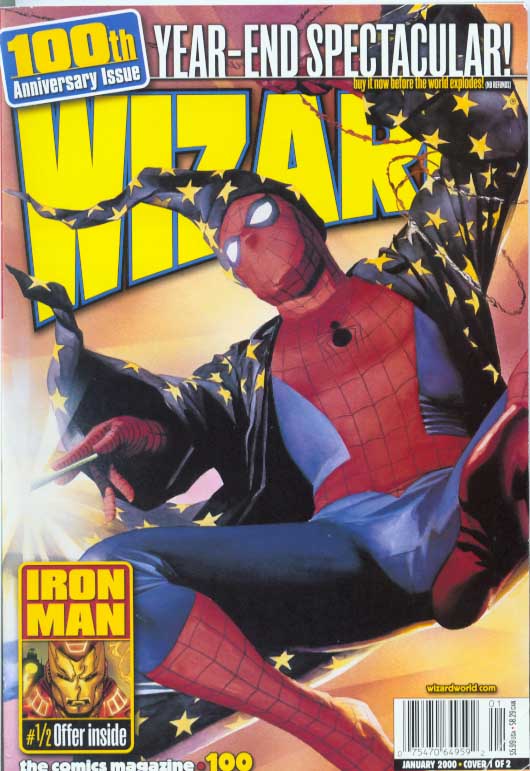





There are a few different ways to stream on Twitch, YouTube and Mixer:
@Jack as i said in the article I’m not looking for a 1:1 translation but respect for the spirit of the source material. The PS4 game, Spec cartoon, Raimi movies and 1994 cartoon are varying degrees of inaccurate to 616 but in terms of Peter’s fundamental characterization they all fall within the same ballpark. They all emphasis the character’s independence and grounded nature. The MCU and USM cartoons (both produced by Disney) uniquely do not do that
@Al: I agree. IMO, the Raimi films were the most faithful. I don’t like these MCU Spidey movies — I find them extremely kiddish, like Nickelodeon movies with huge budgets. They’ve burned through valuable series characters, like Betty Brant. Uncle Ben is non-existent; he was replaced by Tony Stark. Aunt May is a hot middle-aged babe. I dislike Zendaya’s half-baked MJ Whatever-she-is. The only really good things about them have been the villains, which is the reverse of the usual MCU movie.
Regarding the below conversation I shall just say this. I don’t hold it against anyone who enjoys the MCU Peter Parker. Preferences are entirely subjective. But the narrative pushed both officially, by media and in many fan circles is that the MCU rendition is the most faithful rendition yet. This is so obviously untrue that whenever someone says that I treat it as a litmus test proving they are uninformed on the source material
@Jack Brooks – “I think Kevin Feige said somewhere that the MCU is not the 616 universe.” I don’t think that’s what most of the people complaining about Spidey in the MCU are saying. We understand this is a different universe/continuity than the comics. Characters are introduced in a different order, in different times, etc.
For example, we aren’t complaining that MCU Iron Man isn’t fighting communists and racially-insensitive portrayals of Asians. We can look at the MCU portrayal of Iron Man and say “Yeah, that’s the essence of Iron Man from the comics. They got the character right.” But I find it hard to look to look at Spidey in the MCU and say the same thing about him.
They can’t even say the MCU version is the original version of the character from the comics – Spidey was never like this. He picks a fight with the FF while trying to get a job with them, he constantly fights with the Human Torch, and when the Avengers offer him a place on their team, he insults them and picks a fight. How did they look at these issues and think “You know, in the movies Spidey should be subservient to Iron Man.”?
I say this as someone who doesn’t love the MCU/Sony Spider-Man movies. In fact, they irritate me as much as I enjoy them. But Feige’s statement means we can’t use the 616 as authoritative. We have to do a “better than? / worse than?” approach.
I think Kevin Feige said somewhere that the MCU is not the 616 universe. That gives the MCU the freedom to pick-&-choose, free from the bonds of 90% of the continuity, whatever they think works best. For example, Sam Wilson in the MCU was never “Snap” Wilson, he doesn’t have a telepathic bird, his outfit is military gray, evidently he isn’t going to wear the Cap uniform in the Disney+ series, and so on. Of course, the downside is when they make poor choices. But we can’t complain that it’s inconsistent with the 616, if Feige has established the MCU is not the 616.
@Chi-Town Spidey Yeah, many MCU fans tend to be really obnoxious. A lot of them act like they’ve always been huge fans of the characters and know everything about them despite having never touched a comic in their lives. And keep in mind, I’m saying this as someone who really likes most of the MCU.
Great Article!
One of the big reasons why this Spidey is so favored by the mass majority is because it has the “Marvel Studios” logo right on top of it. So the sheep will go to the flock, because the mass majority are MCU fans and they think the MCU can do no wrong. Wouldn’t matter if the characterization and reasons for this Spidey and his supporting staff are off base (and they are)…”Who cares! MCU can do no wrong and the box office proves that! They are very popular! I defend everything they do.” *eye roll*
“A critical part of this was that he was a self-made man. No elder mentor guided him in the use of his powers, helped him create his equipment or provided any sort of advice/accountability for Peter. He did it all himself. He was a loner.”
Yup! 🙂
Great article. You nailed it. Breaks my heart that the MCU is so good but lacks the comics best character.
Tom is great too, would have loved to have seen him take on a version of Peter Parker I recognise.
“And I think we’ve never really seen Spider-Man with that kind of motivation before.”
Yeah, it’s almost like that motivation is not part of Spidey’s character at all.